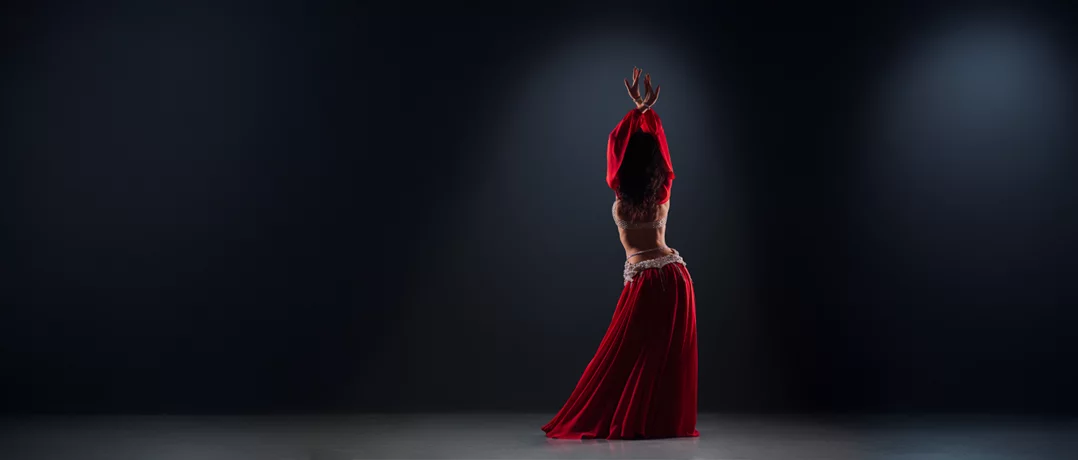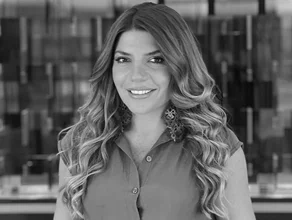A story of challenging convention, breaking free from expectations, and forging a life driven by passion and purpose.
From tragedy to global stage: how Janine Daou is redefining belly dance
From tragedy to global stage: how Janine Daou is redefining belly dance


At just 16, Janine Daou’s life was upended when a car accident claimed the lives of her parents. Overnight, she was orphaned, and with their passing, her long-standing passion for dance was put on hold.
Today, Daou is an emerging force in the global dance community, commanding an audience of more than 1.1 million followers on TikTok and nearly 200,000 subscribers on YouTube. Her journey, however, has been shaped as much by resistance as resilience.
Despite discovering her love for movement at the age of seven, Daou grew up in a household where dance was forbidden. Her parents discouraged any artistic pursuit, urging her toward academic achievement instead. She pleaded for ballet lessons but was repeatedly denied, and when she practiced at home, she was punished. The tension between her passion and parental disapproval defined much of her early life, until tragedy interrupted it.
Belly dance, or Raqs Sharqi, has always carried contested meanings. Western fascination with the form can be traced back to 19th-century French writer Gustave Flaubert, whose exoticized accounts of Egyptian performers shaped the West’s sexualized lens on the art. His writing helped fuel Orientalist perceptions, framing belly dancing as a sensual spectacle rather than a cultural expression. The term Danse du Ventre, or “Dance of the Stomach,” later translated as “belly dance,” reflects this reductive view.
Daou sees her work as a direct challenge to such distortions. For her, belly dancing is not performance alone, it is cultural heritage, identity, and expression. Through her teaching and her online presence, she insists on preserving its authenticity while pushing back against appropriation and misrepresentation.
Her return to dance came unexpectedly. Three years after her parents’ death, a doctor treating her scoliosis advised regular exercise. Daou enrolled at Gharzouzi Dance School, in the only class that fit her schedule, dance. That choice marked a turning point.
Even as she pursued higher education, earning dual degrees in Nutrition and Dietetics from the American University of Beirut and in Hospitality Management, with internships at Hotel-Dieu in Beirut and in South Carolina, dance remained a constant. To her dismay, life intervened again when she became a mother to four children within six years.
Struggling with depression and weight gain, Daou’s husband encouraged her to return to the studio. She did and eventually closed her busy nutrition clinic in Achrafieh to dedicate herself fully to dance. She trained rigorously in Egypt and Lebanon, served as an assistant instructor for two years, and taught independently for seven.
In 2020, Daou and her family relocated to Canada. To combat homesickness, she turned to digital platforms, launching TikTok and YouTube channels. Her blend of technical mastery and humor quickly struck a chord. A viral tutorial, demonstrating how women could use belly dance as a form of intimacy, garnered more than 7 million views, particularly resonating in Saudi Arabia and Egypt. In these countries, the dance is culturally significant nonetheless often misunderstood, and belly dance costumes are sometimes included in wedding dowries, though few women are taught how to use them.
Now, Daou’s Koutou Moutou platforms share not merely choreography but lifestyle content and cultural commentary, drawing a diverse global audience. She remains committed to her mission: to reclaim belly dance as an art form rooted in identity, and to abolish stereotype.
“Dancers themselves are responsible for the reputation of the dance,” she says, echoing the words of Egyptian dancer and actor Mahmoud Reda.
Art itself is not good or bad, it is how the artist represents it
Daou plans to return to Lebanon within a year to establish her own dance academy. With her growing global reach and unwavering vision, she is well on her way to shaping performances, and the future perception of belly dance itself.


